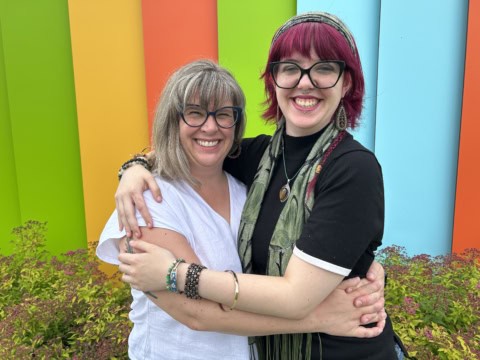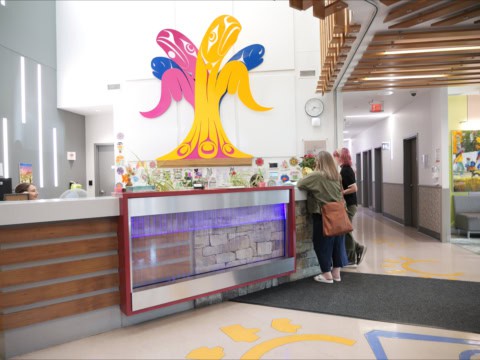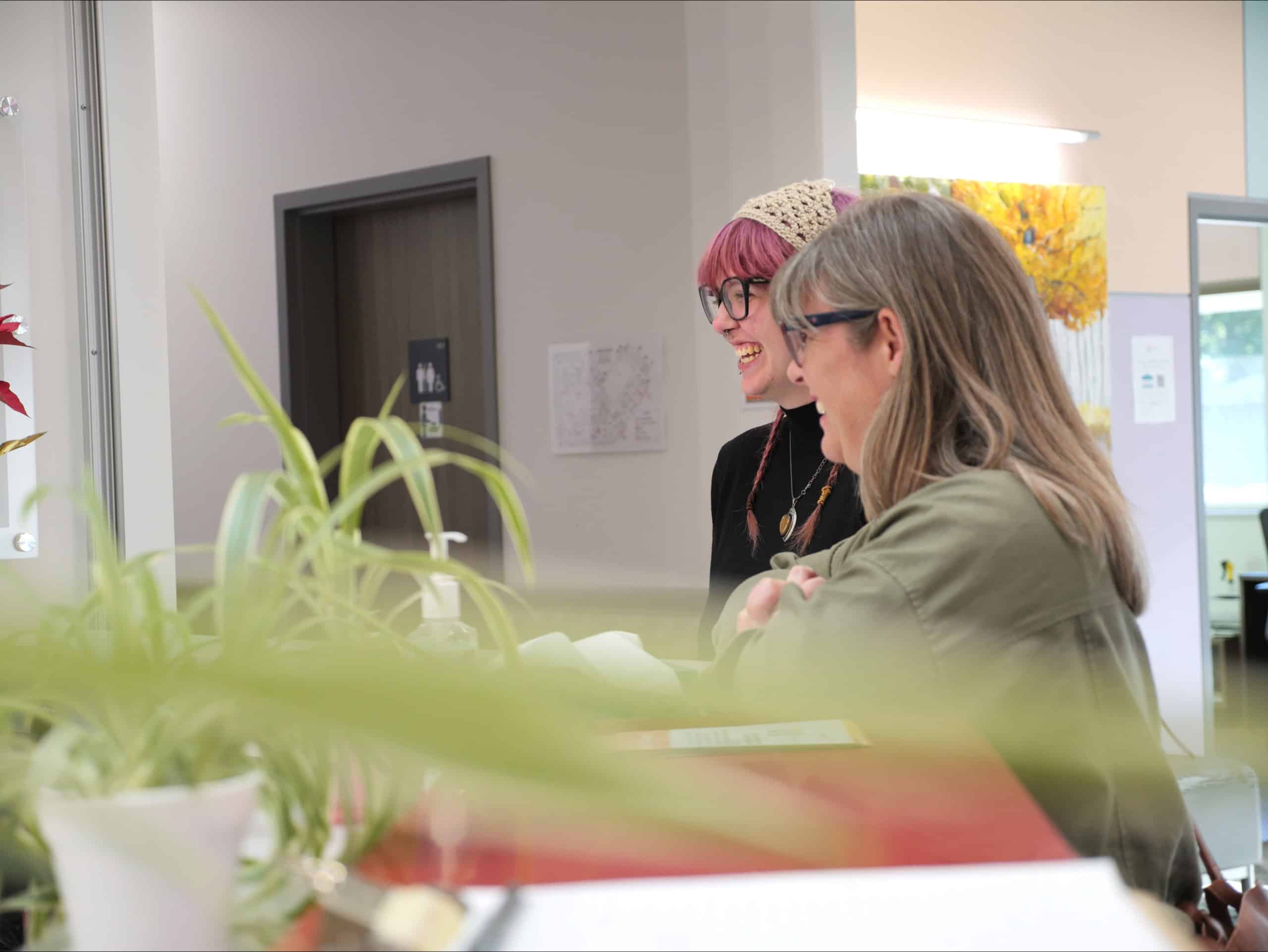Driving away after dropping your child off at an intensive live-in mental health program is hard.
 That’s how Jill Oliver describes feeling after admitting her youth, Faer, to CASA House in 2022.
That’s how Jill Oliver describes feeling after admitting her youth, Faer, to CASA House in 2022.
For Jill’s family, the journey to get the right treatment has been long and challenging, surpassing 10 years. “When Faer was in Grade 2, things came to a head,” says Jill. “The outbursts were dominating the home.”
The following year, Faer was referred to CASA Mental Health and assigned a therapist who helped with emotional regulation. As time went on, it became clear that individual therapy wasn’t enough. Jill and her husband sought out private assessments for a diagnosis, pursued referral after referral and attempted to find a private psychiatrist, paying out of pocket in the hopes of finding the right care for Faer.
“In Grade 6, we got a phone call from the school principal. Faer had confided in one of the students that they wanted to die,” Jill says. “The first significant suicide attempt was just after they turned 11, which is a heartbreaking thing … The feeling, when you’re in it … you’re exhausted, scared, frantic, desperate,” she explains.
 “I thought, ‘We need to go back to CASA,’” says Jill. After intake, Faer received regular treatment from CASA psychiatrists and therapists. And then, some good news: a psychiatrist gave Faer a more significant diagnosis and put them on the waitlist for CASA House.
“I thought, ‘We need to go back to CASA,’” says Jill. After intake, Faer received regular treatment from CASA psychiatrists and therapists. And then, some good news: a psychiatrist gave Faer a more significant diagnosis and put them on the waitlist for CASA House.
“We had quite a few trips to the Stollery when things got really bad, some more ambulance rides, but between the changing of medications and therapy, it got us through,” says Jill. And CASA House represented hope.
The call about CASA House came one year after Faer’s psychiatrist made the referral, and Faer started the program at age 13.
At CASA House, up to 19 youth form a cohort. They receive individual, family and group therapy, while staying at the Sherwood Park facility for an average of four months. Teens receive medical care from psychiatrists who can prescribe, monitor and adjust medication, and therapeutic care from mental health therapists, all while attending school on site. Parents and caregivers must attend Wednesday evening sessions, and can take their teen home from Friday afternoon to Sunday evening.
Despite her worry when she drove away that day after dropping Faer off, on reflecting about the experience now, Jill says CASA House was like winning the lottery.
 “It’s a specialized, intensive environment,” she says. Being among the other patients and families, teens realize they aren’t alone in what they’re experiencing. She describes the teachers as exceptional, and credits them with helping Faer build confidence. Parents and caregivers are encouraged to look after their own mental health, including Faer’s dad, who began seeing a mental health therapist through CASA’s Family Therapy program.
“It’s a specialized, intensive environment,” she says. Being among the other patients and families, teens realize they aren’t alone in what they’re experiencing. She describes the teachers as exceptional, and credits them with helping Faer build confidence. Parents and caregivers are encouraged to look after their own mental health, including Faer’s dad, who began seeing a mental health therapist through CASA’s Family Therapy program.
“The program is hard for the kids and the parents,” she admits, “but it’s so worth it.”
Today, Faer is 17 and still seeing their CASA psychiatrist. Jill’s youngest child is also a CASA patient. The family donates monthly to CASA and both Jill and Faer serve on CASA’s Youth and Family Advisory Council with other youth and family members who have lived experience accessing CASA’s services. They lend their voices to CASA staff and leadership on policies, projects, initiatives and even consulted on the four new CASA House facilities that CASA is building across the province by 2029, to meet youth and families closer to where they live, work and play with life-changing mental health services.
For families like Jill’s, CASA is a lifeline.
CASA is the only non-profit of its kind in Alberta, providing free treatment to the missing middle – care for kids and youth with complex mental health needs, who require more help than their community can offer but who shouldn’t need acute care in the hospital.